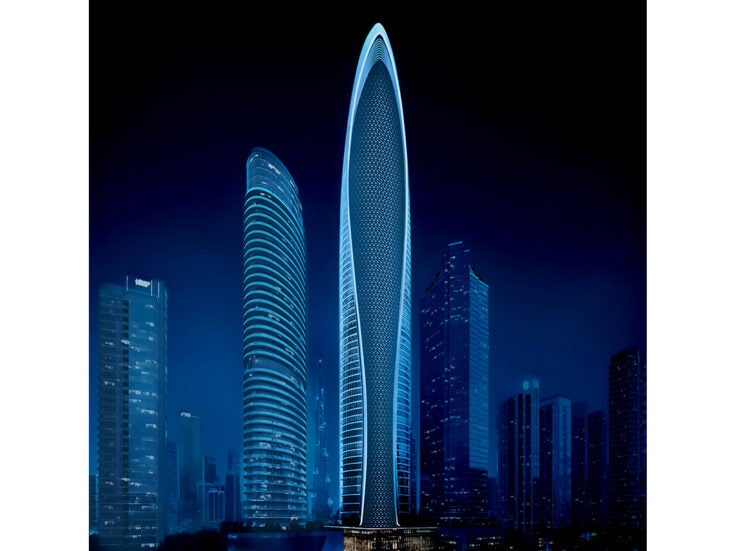
Switzerland is so cute and clean and generally adorable that you could just about imagine living there, says Ross Clark.
Graham Greene may or may not have written the line uttered by a scathing Harry Lime in Carol Reed’s film of The Third Man: ‘In Switzerland they had brotherly love, 500 years of democracy and peace, and what did they produce? The cuckoo clock’. One theory is that the line was added by Orson Welles, who played Harry Lime, rather than Greene himself.
But when it came to find somewhere to spend his retirement, Greene realised that 500 years of peace and democracy are not such a bad thing after all. At the time of his death in 1991 he was living in the village of Corseaux, near Vevey. He is buried in the churchyard there.
Switzerland is not the most innovative country in the world, but when it comes to finding somewhere safe and secure to live, it is hard to beat. Crossing the country by train from France or Italy is like chancing upon a well-kept house in a run-down street. Compared with other Europeans, the Swiss are almost pathologically well-behaved. How else can they combine one of the highest rates of gun-ownership with one of the lowest murder rates?
Having once been given a dressing-down by a policeman in Lausanne for nipping the road when the pedestrian light was red, I can vouch for the seriousness with which the Swiss treat minor misdemeanours. Recently, the Swiss National Party caused a stir by suggesting that foreign nationals found guilty of serious crimes should not only deported, but their entire families be sent packing too.
Graham Greene, though, was one of the lucky few – along with Charlie Chaplin, who was also resident near Lausanne until his death in 1977. Until recently it was all but impossible, under laws dating from the early 1960s, for a foreign national to buy property and settle in Switzerland – unless you were working for a company who sent you there to fill a position. And even then it was possible you would only be awarded a ‘G’ permit, which allowed you to work in the country but only if you returned to your flat in France, Germany or Italy come the end of the day.
Individuals were allowed to buy holiday homes, but only after receiving permission from individual cantons, which operated strict quota systems. As a result, Switzerland has escaped the worst effects of the property booms in other European countries. The Swiss do not get priced out of their towns and villages by wealthy incomers who are able to outbid them whenever a house comes up for sale.
The growing pressure for freedom in the movement of people and goods throughout the EU, however, has proved too great for Switzerland to resist. Since becoming landlocked by EU countries following the admission of Austria into the EU in 1994, Switzerland has been negotiating with the EU to lower its fences. From June 2007, EU citizens have had a right to reside in Switzerland. Moreover, plans have been put before the Swiss Parliament to open the housing market to outside investors.
So will the streets of Gstaad and Montreux suddenly fill up with vandals, barbarians and chancers out to make a quick buck on the back of inflation in property prices? Not quite. Anyone moving to Switzerland will still have to register for a residence permit. If, after three months, they cannot prove that they have a job or can otherwise support themselves, they may still have to leave the country. Also, Switzerland retains the right to implement restrictions until 2012 if it feels that the rate of immigration has been too high.
Not everyone is convinced that the liberalisation of the laws on property ownership will amount to all that much at all. ‘We have had people coming to us saying they want to buy up property on Lake Geneva because the Swiss are going to get rid of this legislation and property prices will double overnight,’ says Jeremy Rollason of Savills. ‘But I can’t believe that will happen. The legislation, known as the Lex-Koehler regulations, has been very successful at preventing outsiders driving up prices in the way they have been in places like Cornwall. There will still be restrictions placed at cantonal level.’
Any foreign national wanting to build a villa for use during their annual week of skiing may just be disappointed. The cantons, adds Rollason, have shown a strong preference for allowing holiday accommodation which will be occupied throughout the year – and disallowing private villas. ‘What they want are ‘warm beds’, not beds which are cold for eleven months of the year.’
One difference which visitors to Switzerland may notice as a result of the changes is a little less insularity. Once a country begins to look a little more kindly upon immigrants, one of the first things to improve is the restaurants. For all its gorgeous scenery, Switzerland is still more highly regarded for its safety than for its panache. In fact, it is the world’s number one destination for the chronically-worried. For much of modern history you moved to Switzerland, if you could do so, because you were worried your own government was going to confiscate your wealth or because you feared nuclear war.
Every Swiss home, by a federal law of 1963, must have access to a nuclear fall-out shelter, stocked with food and water. Many larger houses have their very own shelter, with shafts going 30 feet into the ground. It is a frightening thought: that in the aftermath of a nuclear war the world would have had to be repopulated almost entirely by the Swiss. But one thing is for sure: it would have been a tidier and safer world than the one we have now.








